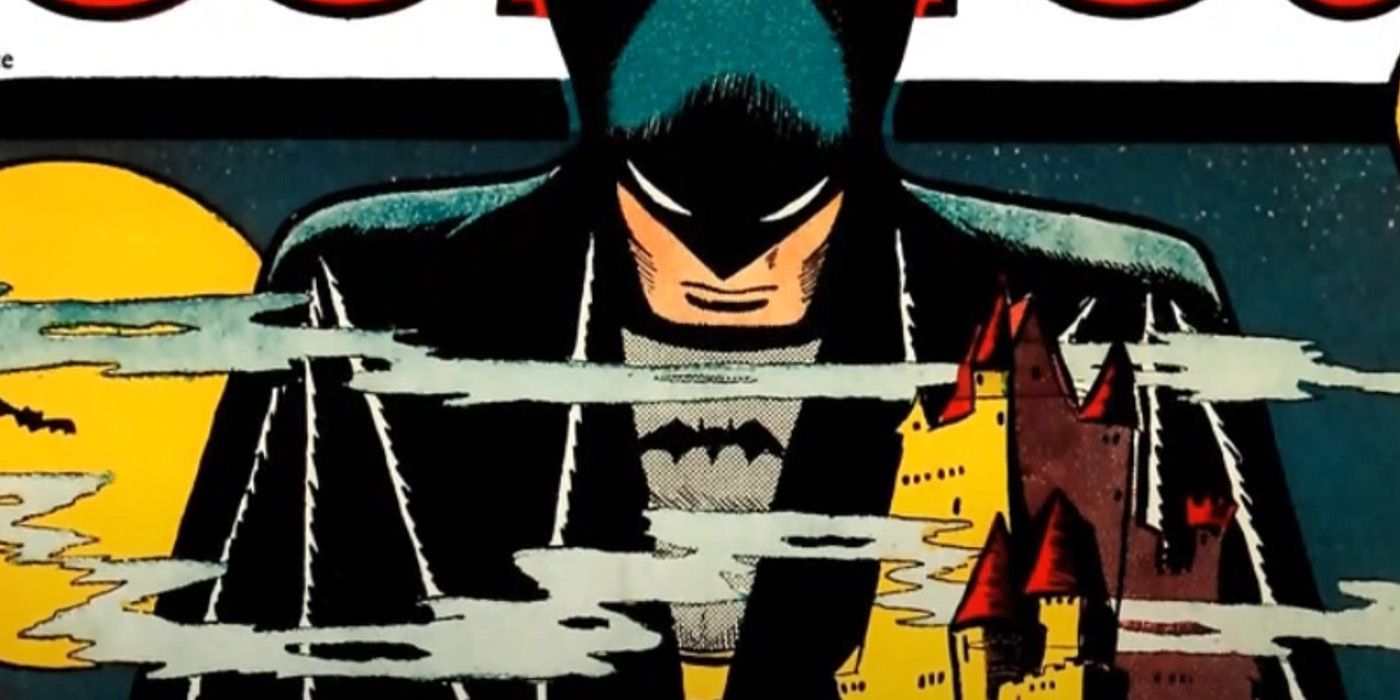[[{“value”:”
The Big Picture
Batman: Caped Crusader
reimagines Gotham with supernatural foes, setting the stage for an exciting and unknown world for Batman.
The Mad Monk, a forgotten but intriguing villain, deserves a proper adaptation in the
Caped Crusader
series, given its focus on supernatural elements.
Caped Crusader
‘s unique storytelling approach showcases a complex portrayal of Batman’s rogues, making the series stand out in superhero animation.
With Batman: Caped Crusader, Prime Video has proven that they too can tell notable superhero stories through animation with characters as popular as Batman himself. But what makes Caped Crusader especially notable is the way the animated series portrays its villains. Layered and complex, full of inner turmoil, rage, and a desire to take what they cannot have, Batman’s rogues have always been the most iconic in all comic books, DC or otherwise. But as we await a potential second season of this Prime Video series, there’s one Golden Age Batman villain who Bruce Timm and company should really consider revisiting in the future: the Mad Monk.
This Classic Villain Drove Batman Over the Edge
Few Batman characters made a real name for themselves before Robin, the Joker, and Catwoman all came onto the scene in 1940, but one such villain was the Monk, sometimes known as the Mad Monk. This occultic foil first appeared in Detective Comics #31 in 1939, just a few issues after the Batman (stylized occasionally as Bat-Man) first debuted. Additionally, the Monk proved such a threat to the Caped Crusader, that he doubled as the Dark Knight’s first multi-issue story, with Detective Comics #32 picking up where the previous issue left off. Though Doctor Death was Batman’s first supervillain to make the jump from one issue to two, the Mad Monk’s appearance is a single adventure (Batman’s fifth in total), while Doctor Death appeared in two separate stories. To make things even more interesting for Batman, the Mad Monk was also the first of his enemies to be labeled “supernatural,” shifting Batman’s entire paradigm in the process.
In this Golden Age story, the Monk is described as both a vampire and a werewolf (though today he’s considered only the former) and hopes to create an army of werewolf women at his disposal. Batman gets involved only after the Monk — dressed in his red hooded garb with a skull and crossbones symbol on his forehead — sets his hypnotic sights on Bruce Wayne’s love-interest and one-time fiancé, Julie Madison. As the Monk kidnaps Julie and takes her to his homeland of Hungary, Batman pursues the fiend. It’s important to note that, in many of Batman’s earliest adventures, he had no problem killing his enemies when deemed absolutely necessary (or letting them die gruesome deaths). The same was true for the Monk here, though, since he’s technically a member of the undead anyway, perhaps that doesn’t really count. (We should also note that the Monk’s assistant, Dala, was also Batman’s first female antagonist.)
In Detective Comics #32, Batman rescues Julie and kills both the Monk and Dala while they lie asleep in their coffins, using the popular silver bullet trick. Even as one of Batman’s most stylish-looking enemies, with a distinct look that can be recognized from miles away, the Mad Monk is one of those Batman characters who largely fell into oblivion. The Silver Age would reinvent the character as New Orleans-based Louis DuBois who, along with his sister Dala, was cursed by former slaves following the Civil War, becoming vampires. This version was created by Gerry Conway and first appeared in Detective Comics #515 in 1982 (he even turned Batman into a vampire for a time), but would be retconned out of existence a few years later by the impending Crisis on Infinite Earths. In 2006, Mike Wagner would retell the original Bob Kane, Bill Finger, and Gardner Fox story with his modernized remake, Batman and the Mad Monk. Set between the events of Batman: Year One and Batman: The Man Who Laughs, the Monk was renamed yet again (now called Niccolai Tepes, a direct reference to Dracula) and Dala was no longer a vampire.
The Monk Has Some Real Potential as a Supernatural Foil for Batman
Save for folks like Solomon Grundy, Nocturna, and Ra’s al Ghul (depending on the iteration), Batman doesn’t have too many enemies who directly call upon supernatural power. Sure, he exists within a universe which includes plenty of other magic-based characters, but Batman, generally speaking, strays from that side of the DC cosmos. But it’s interesting that one of the Dark Knight’s very first, and arguably one of his most personal, enemies was a vampire, a clear and clever contrast to many’s assumptions that Batman himself was a member of the undead. But the Mad Monk is unique in that he blends the supernatural ideas of vampire and werewolf with the concepts of cults and psychology (he poses as Julie’s psychologist in his earliest story), which makes him a bit more three-dimensional than your average vampire, even if he’s usually written as a pretty one-note character. He’s cunning, patient, and intrinsically mad, which makes him the perfect opponent for Batman himself.
Other incarnations of Batman, such as Kevin Conroy‘s from Batman: The Animated Series and Rino Romano‘s from The Batman, have done well when facing supernatural opponents. Heck, the latter even starred in The Batman vs Dracula, an animated feature that pits the Dark Knight not only against all of literature’s most famous vampires, but also against a vampire Joker, and other undead acolytes (and, believe it or not, it’s fantastic). The idea of Batman battling vampires has existed since nearly the very beginning of the character’s comic book history, and what better way to honor that strange tension than by bringing back the Caped Crusader’s very first vampire villain?
It’s true that the Mad Monk is often considered a forgotten Batman villain, one who only die-hard Bat-fans have any real interest in or desire to see brought to life anywhere but the original comics. Of course, that doesn’t mean he doesn’t have potential. No, he’s not the Joker or Two-Face, but he is single-minded and just as devious, with an instantly recognizable costume that makes him stand out. His mark on the Batman mythos has been felt even as recently as Tom King‘s Batman run, as well as the DC vs. Vampires limited series that ran between 2021 and 2023. (Likewise, Dala has appeared in the Batman: The Brave and the Bold episode “Shadow of the Bat!”) No matter which version of the character — Golden, Silver, or Modern Age appearances — one pulls from, there’s enough material to transcribe this B-list Bat-villain to the big time for Batman: Caped Crusader, a show that prides itself on adapting both popular and lesser known Batman antagonists.
‘Batman: Caped Crusader’ Gives Harley Quinn an Even Better Origin Story
Bruce Timm’s latest adaptation puts a unique spin on Gotham’s most popular psychiatrist.
In the Batman: Caped Crusader episode “Night Ride,” Batman (voiced by Hamish Linklater) arms himself against the Gentleman Ghost (Toby Stephens), an actual vengeful spirit who has come back from the grave to “finish the job.” With this episode, Caped Crusader firmly establishes the supernatural, not just as an idea that Batman can wrestle with, but as a tangible (albeit immaterial) concept that cannot be argued with or denied. In the very same episode, Alfred (Jason Watkins) is even possessed by the ghostly enemy, and it takes supernatural means for Batman to defeat (and hold captive) the evil spirit. Even “Nocturne” deals in the paranormal, with Mckenna Grace‘s Nocturna literally sucking the very life force out of others to increase her strength. If Season 1 of Caped Crusader does anything to set up more exciting Batman stories in the future, it actively takes an interest in the unknown and otherwordly, priming the series for a character like the aforementioned cultist Monk.
Given that Caped Crusader is set in the 1940s, has engaged with the paranormal, and has already adapted some of Batman’s most famous early adventures (such as in its depiction of Clayface in “…And Be a Villain”), it doesn’t feel like a stretch that the Mad Monk’s two-part story could be adapted properly on this Prime Video series. Not only does “the terrifying master of crime” fit well within the bounds of Caped Crusader‘s purview, but it could also prove itself to be one of this Batman’s finest hours if done right. Frankly, there wouldn’t be much from the original story that the writers would even have to change, and maybe that’s for the best. This Golden Age Detective Comics tale is still known and beloved for a reason, and while the Mad Monk himself could benefit from some more introspective examination, Bat-fans everywhere would likely jump at the chance to see it properly brought to the screen. While an animated feature would probably do the trick, a show as primed for the concept as Caped Crusader shouldn’t pass up the opportunity to bring this long-forgotten Batman baddie to the animated screen.
Batman: Caped Crusader is available for streaming on Prime Video in the U.S.
“}]] Some of Batman’s original villains were a bit extra, and this one is no exception. Read More

